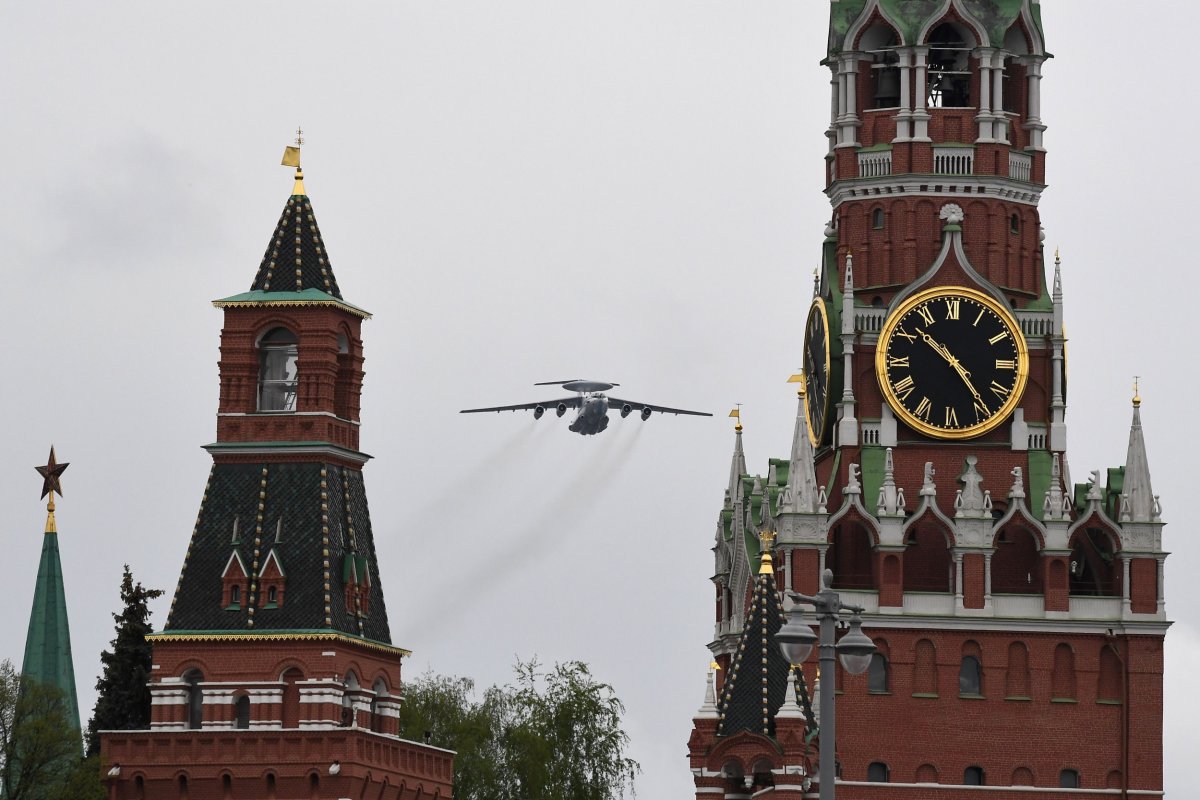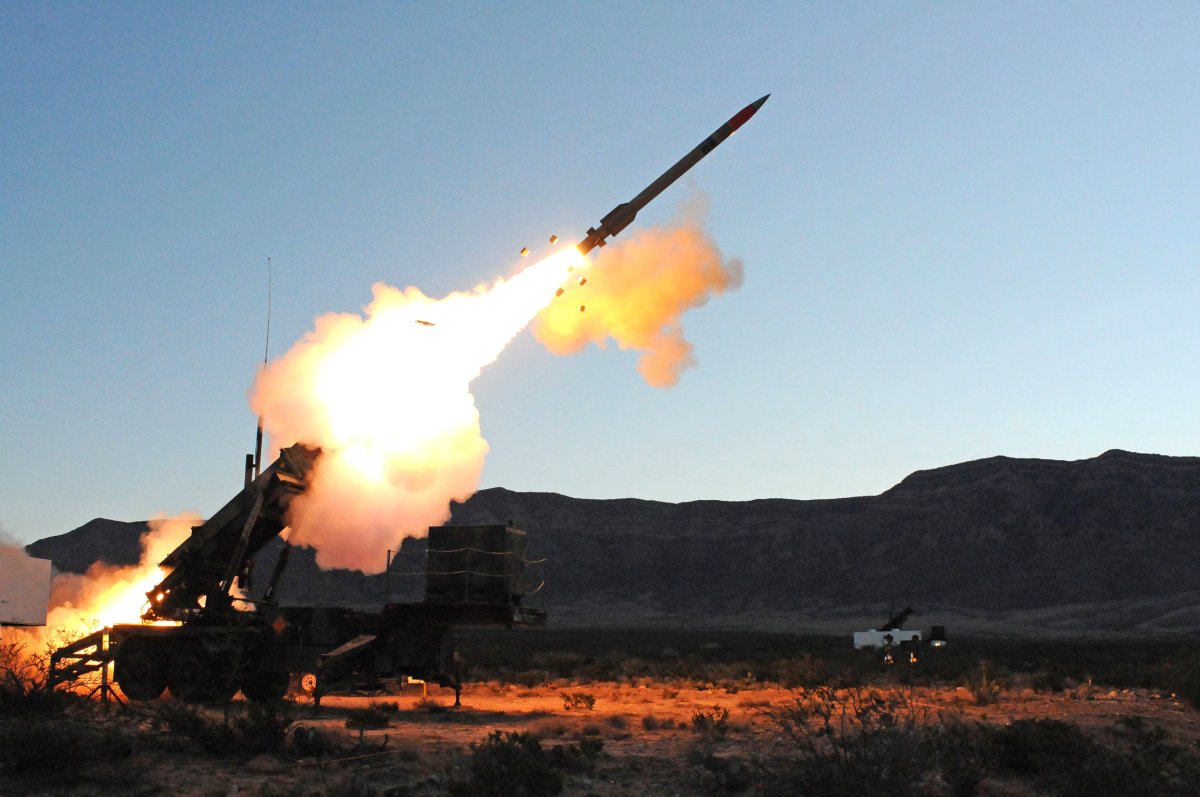The reported loss of a Russian A-50 surveillance aircraft over the Sea of Azov could prove "painful" for Moscow's military as it struggles to subdue Ukraine through winter, according to military experts.
Kyiv claimed the downing of an A-50 and the damaging of an Il-22 airborne command post on Sunday, an account supported by prominent pro-war Russian military bloggers on Telegram.
Russian authorities have yet to address the claims, and the Defense Ministry did not respond to Newsweek's emailed request for comment. Kyiv has not specified how the aircraft were hit. Newsweek has contacted a spokesperson for Ukraine's air force by WhatsApp to request comment.
Among the theories is that the planes were targeted by a mobile Ukrainian Patriot anti-air defense system, one of which has been credited with shooting down several Russian aircraft near the front line in recent months.
"It's a severe loss for the Russians," Ivan Stupak—a former officer in the Security Service of Ukraine and now an adviser to the Ukrainian parliament's national security, defense and intelligence committee—told Newsweek.
Pavel Luzin, a Russian political analyst and visiting scholar at the Fletcher School of Law and Diplomacy, told Newsweek that the loss is notable given Moscow's thinning resources. "Russia has some other aircraft of these types, but their amount is limited," he explained.
At least one other A-50 has been reported hit since Russia launched its full-scale invasion of Ukraine, bombed by Belarusian partisans at a base near Minsk in February 2023.

The incident represents the latest humiliation for a Russian air force consistently unable to leverage its vast numerical superiority over the battlefields of Ukraine. The shoot-down, if confirmed, would be a boon for Ukraine as its troops hold off renewed Russian winter offensives along the 600-mile front.
It is not yet clear how the two aircraft were hit. Reports emerged on Russian pro-war milblogger channels claiming a friendly fire incident, but other bloggers disputed the theory. Ukrainian commanders said their forces were responsible, though have not specified the attack method.
"It could be a Patriot anti-aircraft system supplied by the United States, or from Germany," Stupak suggested. "On December 22, [three] combat jets from the Russian side were destroyed over the occupied territories of Kherson region plus the Black Sea. So, it could be."
Ukraine claims to have shot down several Russian aircraft in recent months using U.S.- and German-supplied Patriot air defense systems, the interceptor missiles from which are effective out to around 100 miles and can reach the northern part of the Sea of Azov from Ukrainian frontline areas.
Ukraine is thought to have received three to five Patriot systems from the U.S. and Germany, their exact number and location closely guarded military secrets.
Their prime role is to defend Ukrainian cities and vital infrastructure against Russian missile and drone strikes, but recent hits on Russian aircraft suggest at least one battery is being used within range of the southern and eastern fronts, perhaps in a mobile capacity.
One system, Stupak said, appears not to be "located in a particular territory, so it's always on the move...It could be deployed here or there, Kharkiv region or Dnipro region. And the crew is waiting to trap Russian planes and destroy them. [They can] launch missiles towards the planes, and within maybe 20 minutes, leave the territory and hide."
Luzin said such an approach would not be unusual. "Patriots can be mobile, there is no technical problem," he explained. "Missile ambush is a known tactic."
Other theories appear less likely. "Some of our citizens believe it's F-16s," Stupak said, noting the proliferation of rumors suggesting the American-made fighter jets are already operating in Ukrainian skies. Ukrainian pilots are currently undergoing training on the platform, and the first F-16s are expected to be flying missions sometime in the first half of 2024.
Friendly fire, Stupak added, would be "very strange" given the radar and electronic signals produced by the A-50 and Il-22, their location in Russian airspace, and the likely presence of escort fighter aircraft.
For Russian anti-aircraft operators to confuse this "motorcade" for enemy planes would be "weird," Stupak said, but acknowledged that "blue-on-blue" aerial incidents have been a recurring problem for Russian forces operating in Ukraine.

Regardless of how they were downed, the loss of one or both aircraft could pose a problem for Moscow. "These types of aircraft allow Russia to conduct theater electronic and radar intelligence," Luzin said. "These aircraft allow Russia to find targets for long-range missile strikes."
The planes are also designed to track enemy operations, including the launch of Ukraine's advanced Western-supplied missiles. "It could see almost all the territory of Ukraine: combat helicopters, combat jets, missiles, launchers, Storm Shadow launches," Stupak added of the A-50. "It could warn ground forces to be careful if Ukrainian Storm Shadows, for example, were heading towards them."
Such aircraft and their crew will not be easily replaceable, Stupak said. "There are 15 crew onboard, and they are not just simple guys...they are highly trained for years because they are dealing with a lot of electronic devices, with radio equipment, and so on."
Such operators, he added, have "at least five years of education plus five years of direct work; a minimum of 10 years of experience...It's very painful for the Russian air force."
Colonel Natalia Humeniuk, the head of the United Coordinating Press Center of Security and Defense Forces of the South of Ukraine, said during a briefing on Monday that the "downing of two aircraft" was significant to the battlefield situation.
"The A-50 in fact functioned as the 'eyes' of the enemy, because with the help of this plane and the equipment enabling its activity, the enemy monitored our territory and carried out powerful missile strikes," Humeniuk said.
"And it is due to the A-50 that the situation with future targets has become rather uncertain. Therefore, we will count on the fact that such a hit will be quite sensitive and will at least delay future missile strikes."
Uncommon Knowledge
Newsweek is committed to challenging conventional wisdom and finding connections in the search for common ground.
Newsweek is committed to challenging conventional wisdom and finding connections in the search for common ground.
"severe" - Google News
January 16, 2024 at 06:39PM
https://news.google.com/rss/articles/CBMiX2h0dHBzOi8vd3d3Lm5ld3N3ZWVrLmNvbS93aHktcnVzc2lhLWFpci1mb3JjZS1zZXZlcmUtbG9zcy11cy1wYXRyaW90LWFtYnVzaC01MC1zZWEtYXpvdi0xODYwOTM20gEA?oc=5
Why Russia Air Force's 'Severe Loss' May Be Work of US Patriot Ambush - Newsweek
"severe" - Google News
https://news.google.com/search?q=severe&hl=en-US&gl=US&ceid=US:en
Shoes Man Tutorial
Pos News Update
Meme Update
Korean Entertainment News
Japan News Update
Bagikan Berita Ini















0 Response to "Why Russia Air Force's 'Severe Loss' May Be Work of US Patriot Ambush - Newsweek"
Post a Comment